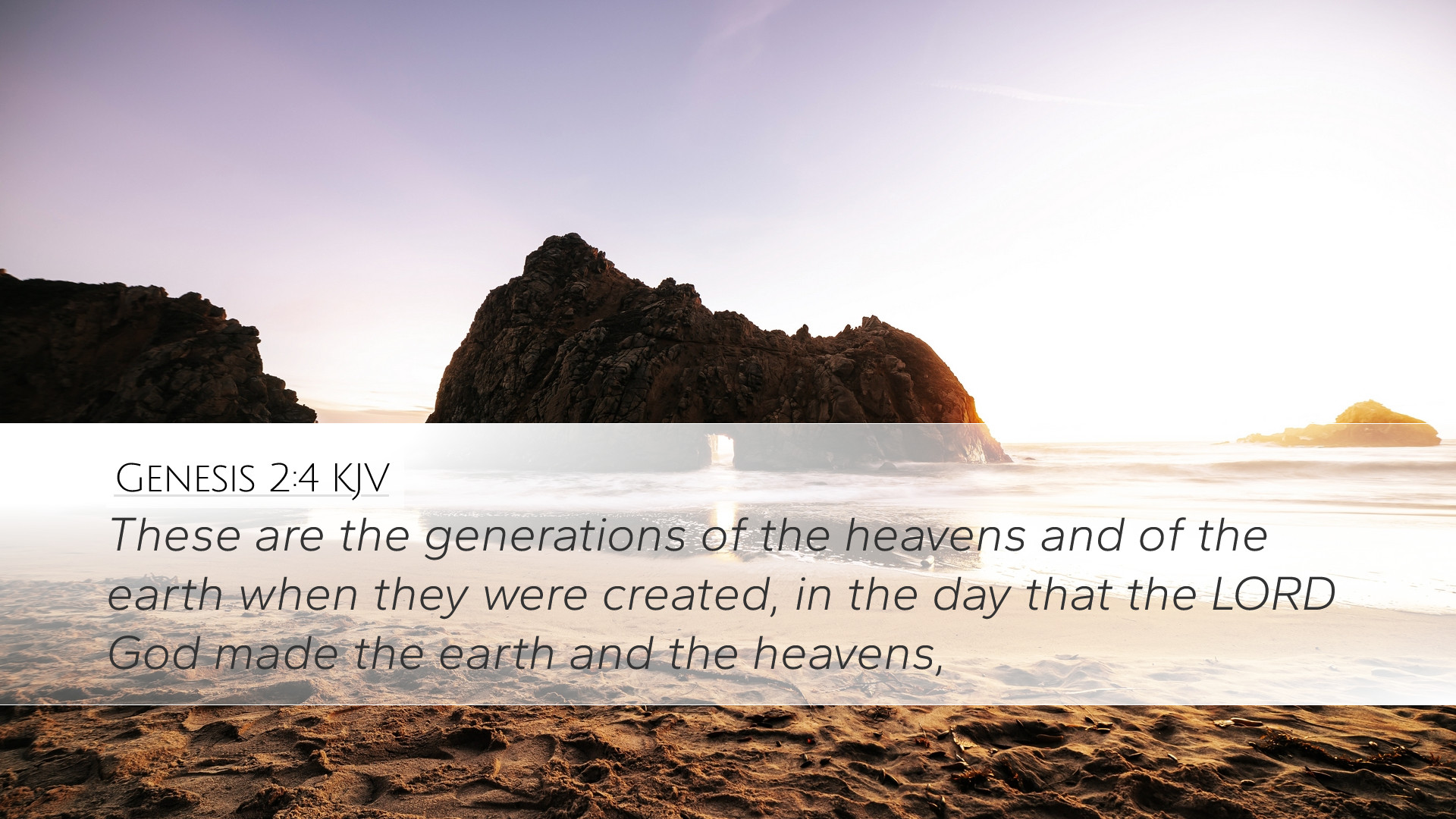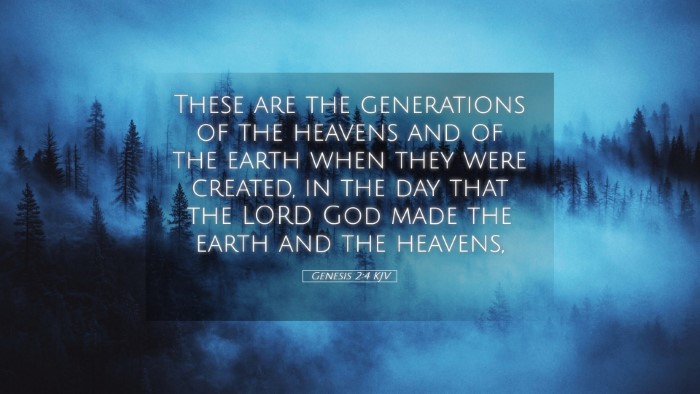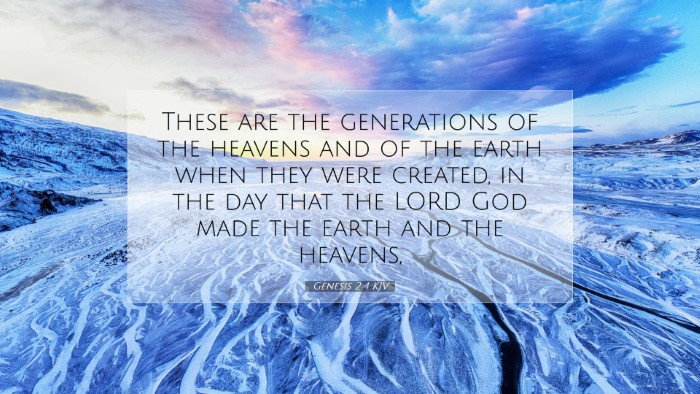Commentary on Genesis 2:4
Genesis 2:4 serves as a pivotal verse in the creation narrative, marking a transition
from the first chapter's comprehensive account of creation to a more intimate portrayal
of humanity's origins. This verse reads:
"These are the generations of the heavens and the earth when they were created,
in the day that the Lord God made the earth and the heavens."
Introduction to the Verse
This verse not only introduces the detailed account of humanity's creation but also
encapsulates a theological framework for understanding God's relationship with the
created order. It highlights the importance of recognizing God as the ultimate
creator and sustainer of life.
Contextual Analysis
Genesis 2:4 serves as the climax of the first two chapters of Genesis. The
phrase "These are the generations of" (Hebrew: Toledot) is significant as
it suggests a new section in the text, indicating the start of a genealogical
account that will follow. Various translations emphasize the creation of the earth
and heavens, confirming the omnipotence of God in bringing them into being.
Insights from Public Domain Commentaries
-
Matthew Henry:
Henry points out that this verse encapsulates both the grandeur and
intimacy of God’s creative acts. It serves as a reminder that while
God is the Creator of the vast universe, He is also deeply involved
with humanity. Henry emphasizes that this verse leads into a discussion
about the moral and spiritual state of humanity, setting the stage for
the creation of man.
-
Albert Barnes:
Barnes highlights that the phrase “the heavens and the earth” signifies
the entirety of creation. He interprets the term "generations"
to refer not only to the physical lineage but also to the spiritual lineage
inherent in God's creation. The term speaks to the ongoing creative
relationship that God has with His creation, portraying a divine dynamic
rather than a static event.
-
Adam Clarke:
Clarke notes the theological implications of the term “made.” He suggests
that this word implies an ongoing process, indicating that creation is not
a one-time event but a continual act of divine involvement in the world.
His emphasis on the dual nature of God as both transcendent and immanent
invites deeper meditation on the personal relationship believers can have
with God.
Theological Themes
Genesis 2:4 sets forth several key theological themes that warrant further examination:
-
Divine Sovereignty:
The declaration of God as the creator of the heavens and the earth reinforces
His sovereignty over all creation. This sovereignty implies that all events
in creation are under His authority and purpose.
-
Creation and Order:
The structured narrative of creation points towards God's intention for order
in the universe. Each act of creation showcases the significance of God's
design, culminating in the creation of humanity.
-
Humanity’s Role:
As God introduces the narrative about humanity, it emphasizes the special role
humans play in creation. It sets the stage for understanding man’s relationship
with God, nature, and each other.
-
Relationships:
The transition from the cosmos to humanity presents God's desire for
relationship. This theme is further developed in the subsequent verses,
where God engages directly with Adam.
Reflections for Pastors and Theologians
For pastors and theologians, Genesis 2:4 provides several important reflections:
-
Preaching Creation:
The importance of preaching on the act of creation can be seen as essential
in developing a robust understanding of God’s nature and authority.
Emphasizing His creative power has implications for preaching on themes
of hope, creation care, and divine sovereignty.
-
Understanding Humanity:
The insights regarding humanity's creation prompt a deeper understanding of the
identity and dignity of every person. This understanding informs Christian
ethics, particularly in areas concerning social justice and the inherent value
of life.
-
God's Immanence:
Reflecting on God’s closeness to humanity reminds leaders of the importance of
a relational aspect of faith, facilitating deeper connections with congregants
and the wider community.
Conclusion
Genesis 2:4 is not merely an introductory statement but a profound verse that
reveals critical truths about God, creation, and humanity. It invites readers to
grasp the dynamics of the relationship between Creator and creation, and
sets the stage for the unfolding narrative of redemption that is central to the
entire biblical text. Pastors, students, theologians, and scholars will find
this verse to be a rich source of reflection, providing insights that resonate
deeply within both the intellectual and spiritual dimensions of faith.


